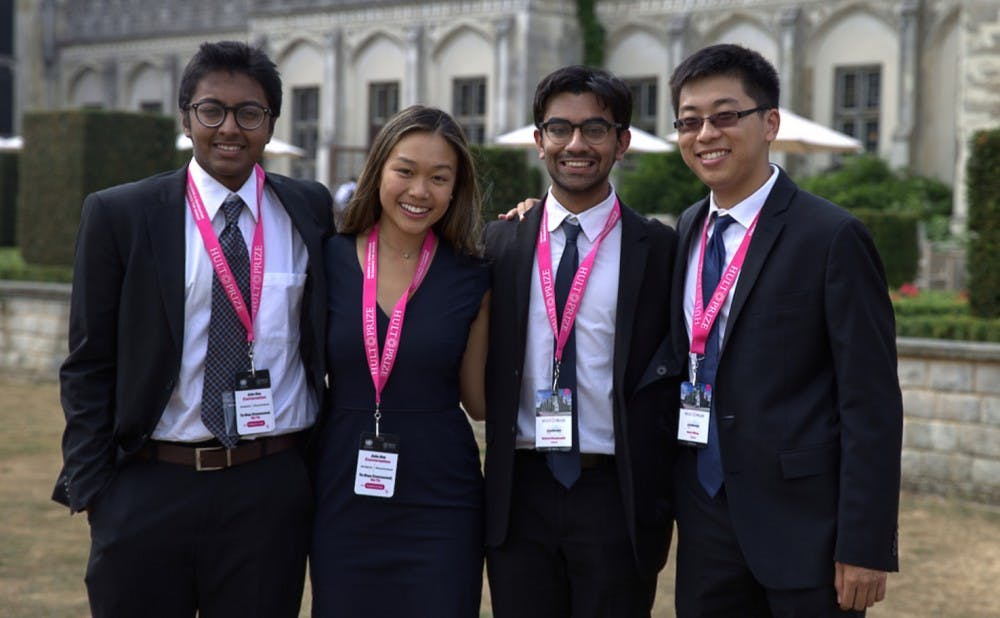When life gives people lemons, they usually make lemonade. When life gives Duke students lemons, they sell them to CEOs and try to revolutionize agriculture.
Four Duke students secured a contract to sell Indian-exported lemons to the Hult Prize CEO's restaurant, Falafel Ink, in Washington, D.C. The team presented their project—mPower—which aims to prevent food waste and boost farmer incomes, at the Hult Prize Accelerator in London.
"Better prices for farmers, better produce for you,” junior Sherry Feng, a team member, said.
Feng, alongside juniors Saheel Chodavadia, Harsh Sanghi and Jason Wang, began the project intending to use cold-storage technology to transport produce directly to retail. After winning the Hult Prize at Duke and the Hult Prize Regionals in Mexico City, the team now has around 7,000 Indian farmers on board.
mPower chose to pilot the program in India because of the greater potential to have real impact—24.6 percent of the Indian population is involved in agriculture.
“Currently, farmers receive 25 percent of the retail price, and according to our market research, fair price for a farmer for the produce that he or she sells is 75 percent of the retail price, and we give them that," Chodavadia said. "Essentially, we almost double the farmer’s income with our business model.”
Chodavadia added that the business model not only aims for direct communication between the retailer and the farmer but also attempts to train the middlemen in tasks like produce handling, helping them improve their skills and increase their earning potential.
Although the Duke team did not make it to the Hult Prize finals, it has been invited to the United Nations in the second week of September.
The team described the Hult Prize Accelerator as a valuable opportunity to refine ideas, draft business plans and network with industry leaders.
“Hult Prize is absolutely incredible, because it allows people to apply all kinds of skills to solve issues in meaningful and impactful domains, learn about cultures through first-hand conversations with people and humanize those who need help,” Wang wrote in an email.
mPower expects to take over 20 to 25 percent of the Indian produce market by the seventh year of operation. Sanghi and Chodavadia are planning to visit India during the next few months to collaborate with community partners and expand their initiative.
The team also encouraged current Duke students to undertake new initiatives and to experiment with their ideas, without being daunted by the possibility of failure.
Get The Chronicle straight to your inbox
Signup for our weekly newsletter. Cancel at any time.

